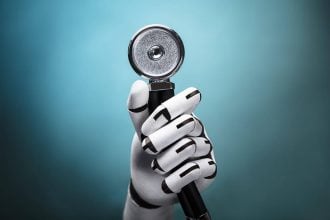An open letter from leading AI and tech industry experts is calling for a six-month pause in developing systems more powerful than OpenAI’s newly launched GPT-4.
In a recent development, tech leaders have called for a 6-month pause in the advancement of Artificial Intelligence (AI) technology. Elon Musk and Apple co-founder Steve Wozniak are both calling for the 6-month pause to consider the risks.
In a groundbreaking move, more than a 100 influential artificial intelligence experts and 1000s of tech entrepreneurs including scientists have signed an open letter demanding a halt to the development and testing of AI technologies that surpass OpenAI’s language model GPT-4.
The reason behind this move is to allow for a thorough investigation of the potential risks posed by these advanced AI technologies.
Elon Musk and Steve Wozniak joined in on the petition on Wednesday in a response to San Francisco startup OpenAI’s recent release of GPT-4, a more advanced successor to its widely used AI chatbot ChatGPT that helped spark a race among tech giants Microsoft and Google to unveil similar applications.
Other experts, who come from various fields including technology, ethics, and sociology, have also raised concerns about the potential negative impacts of AI.
The call for a pause in AI development comes amid growing concerns about the role of AI in areas such as employment, privacy, and safety.
Monash University Department of Data Science & AI, Faculty of Information Technology Professor Geoff Webb said, “I welcome the attention these AI industry leaders are drawing to the potential harms that recent breakthroughs in AI may cause,”
“There is no doubt that the latest generation of AI systems are highly disruptive. However, I think a six-month pause would do little to slow down the rapid acceleration of AI-based technologies. However, I think a six-month pause would do little to slow down the rapid acceleration of AI-based technologies,”
Experts also warn that AI could exacerbate existing social biases and discrimination. AI algorithms are only as unbiased as the data they are trained on, and if the data used to train them is biased, the algorithms themselves will be biased as well. This could lead to discriminatory outcomes in areas such as hiring, lending, and criminal justice.
Given these concerns, the experts are calling for a pause in AI development to allow for a more thorough examination of the potential risks and benefits of the technology.
They argue that we need to develop a more comprehensive understanding of the social, economic, and ethical implications of AI before we continue to advance the technology.
“Bright minds are going to find many ways to achieve unexpected outcomes from these extraordinary tools. Some of those minds will be focused on creating tools that benefit society, like ones that ease tedious and repetitive tasks.
“Others will be less socially aligned. Many of the resulting tools will have totally unexpected outcomes, with harms and benefits that are difficult to untangle,”
“We must accept that these technologies are here to stay. We must work urgently to ensure that they are harnessed for social good and to find effective defences against their potential harms, such as rules and guidelines about when and how they should be used and how their use should be acknowledged or flagged.” said Professor Webb
OpenAI’s recent statement regarding artificial general intelligence, states that “At some point, it may be important to get independent review before starting to train future systems, and for the most advanced efforts to agree to limit the rate of growth of compute used for creating new models
The lack of stringent AI governance systems poses a grave threat to society. With AI’s growing integration in our daily lives, failure to establish governance could result in the loss of millions of jobs, inequality, and increased social discrimination.
The call for a pause on advanced AI development has already gained significant traction, with many leaders in the field of AI and related industries lending their support.
This is a crucial step in the right direction, and it signals a growing recognition of the need to prioritse the safety and well-being of humanity in the development of AI technology.







